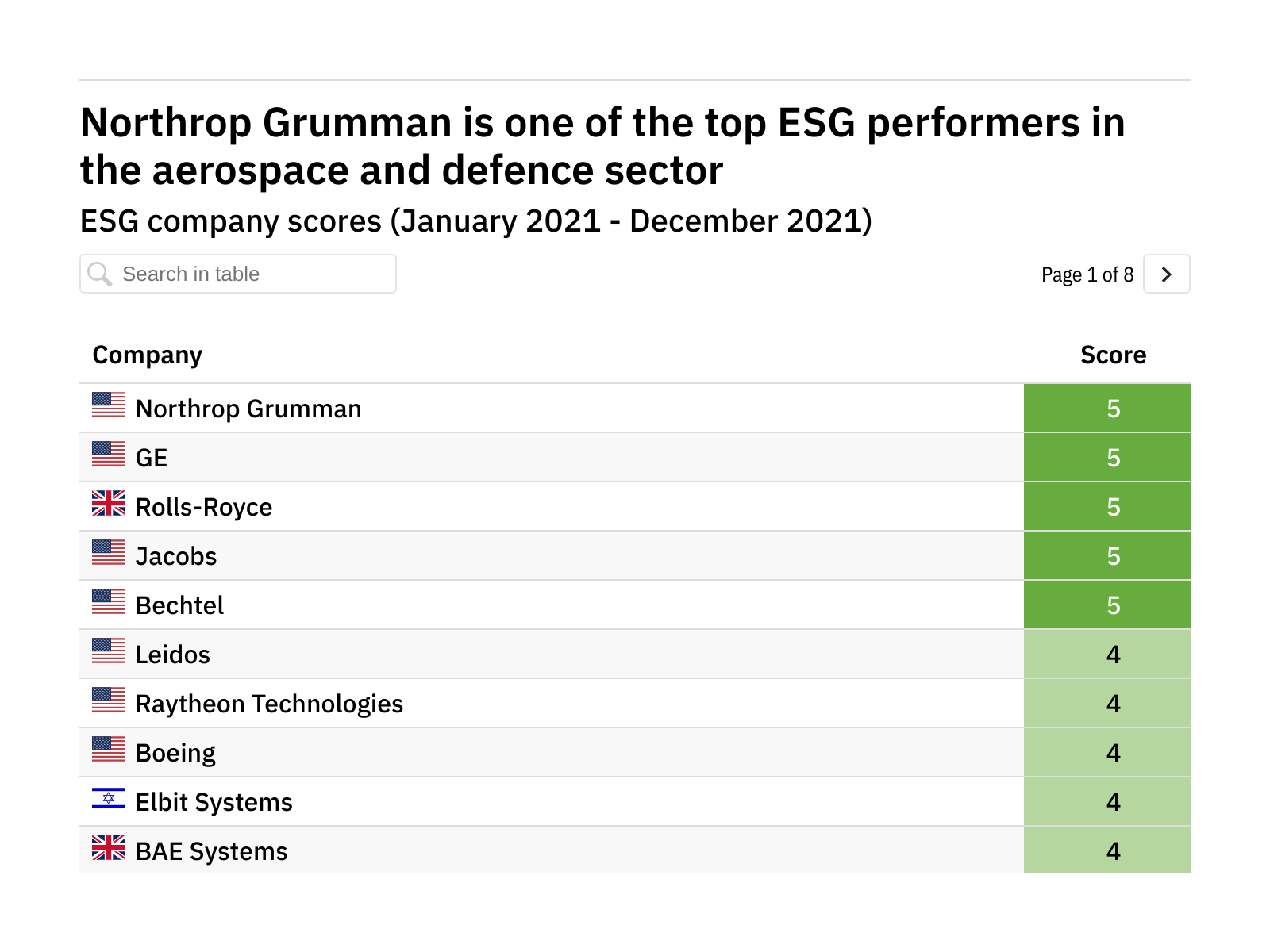
Northrop Grumman and GE are among the companies best positioned to take advantage of future ESG disruption in the aerospace and defence industry, our analysis shows.
The assessment comes from GlobalData’s Thematic Research ecosystem, which ranks companies on a scale of one to five based on their likelihood to tackle challenges like ESG and emerge as long-term winners of the aerospace and defence sector.
According to our analysis, Northrop Grumman, GE, Rolls-Royce, Jacobs and Bechtel are the companies best positioned to benefit from investments in ESG, all of them recording scores of five out of five in GlobalData’s Defense Thematic Scorecard.
The table below shows how GlobalData analysts scored the biggest companies in the aerospace and defence industry on their ESG performance, as well as the number of new ESG jobs, deals, patents and mentions in company reports since January 2021.
The final column in the table represents the overall score given to that company when it comes to their current ESG position relative to their peers. A score of five indicates that a company is a dominant player in this space, while companies that score less than three are vulnerable to being left behind. These can be read fairly straightforwardly.
The other datapoints in the table are more nuanced, showcasing recent ESG investment across a range of areas over the past year. These metrics give an indication of whether ESG is at the top of executives’ minds now, but high numbers in these fields are just as likely to represent desperate attempts to catch-up as they are genuine strength in ESG.
For example, a high number of mentions of ESG in quarterly company filings could indicate either the company is reaping the rewards of previous investments, or it needs to invest more to catch up with the rest of the industry. Similarly, a high number of deals could indicate that a company is dominating the market, or that it is using mergers and acquisitions to fill in gaps in its offering.
This article is based on GlobalData research figures as of 21 January 2022. For more up-to-date figures, check the GlobalData website.




